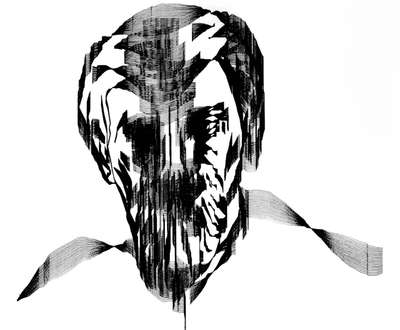| title: | Ästhetik als Informationsverarbeitung. Grundlagen und Anwendungen der Informatik im Bereich ästhetischer Produktion und Kritik |
| year: | 1974 |
An early (1974) and ambitious attempt to cover Information-Aesthetics (as developed by Max Bense, Abraham A. Moles, Helmar Frank, Rul Gunzenhäuser et al.) as well as computer graphics in the algorithmic sense of the word. No other work is known by the time that dared doing anything similar. The work is in German. No English translation exists.
The title may be translated as “Aesthetics as information processing. Foundations and applications of computing in aesthetic production and critique”.
The technical parts have meanwhile (2009) become obsolete. The parts on analytic, synthetic, and generative aesthetics, however, remain valid as a historic document of great rigor. – Main chapter headings are: Ästhetik, Informationsästhetik, Bilder, Generative Ästhetik, Analytische Ästhetik, Computerkunst (aesthetics, information aesthetics, images, generative aesthetics, analytic aesthetics, computer art).
The volume rests upon a model of the aesthetic process as symmetrically mirroring the roles of producer (artist) and consumer (critic). But both, in turn, switch their roles from generation to consumption and back. The artist consumes the critique by generating the work, the critic consumes the work by generating the critique. This is a radical and formal rendition of Duchamp’s statement that the observer (spectator) is really finishing the work.


